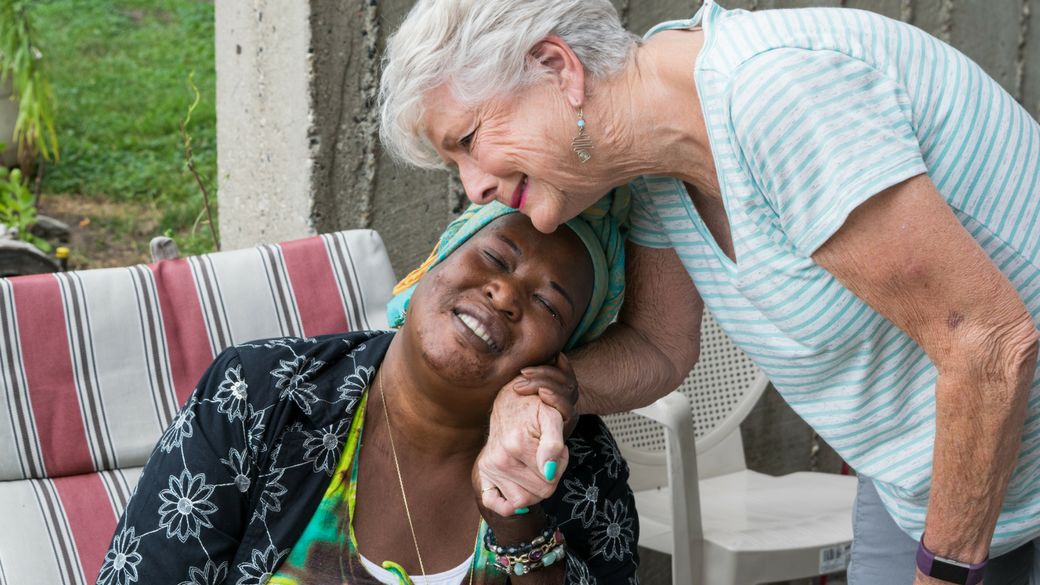Ministry with: Emma Norton Services
There are only 35 homes available for every 100 seniors, differently abled renters, and families with children who are extremely low income. One ministry in the Twin Cities of Minnesota is bridging this gap with the most vulnerable in their community. We spoke with Tonya Brownlow, executive director of Emma Norton Services, to learn more.

The lack of affordable housing is the number one cause of homelessness in the U.S.
According to the National Low Income Housing Coalition, there isn’t a single county in the U.S. where a full-time employee making minimum wage is able to afford a two-bedroom apartment at fair market rent. Further, there is a “shortage of 7.4 million affordable and available” rental properties for extremely low-income populations.
When we consider who is considered extremely low income in our country, we see vulnerable populations make up 75 percent of this income bracket. The GAP, an annual report from the National Low Income Housing Coalition, explains that only 25 percent of households considered to be extremely low income are non-disabled/non-elderly/without children. That means there are only 35 homes available for every 100 seniors, differently abled renters, and families with children who are extremely low income.
One ministry in the Twin Cities of Minnesota is bridging this gap with the most vulnerable in their community. We spoke with Tonya Brownlow, executive director of Emma Norton Services, to learn more.
Tell us about the ministry
Emma Norton Services is a national mission institute of the United Methodist Women. The current program started out of Emma Norton’s vision to create a safe housing space for young, coming-of-age women in the early 1900s to move to the Twin Cities to pursue their life vision of an education and work. Today, Emma Norton continues to be a lifeline to housing and support services for women and children experiencing homelessness and have an added challenge of one or more disabilities. We currently offer permanent housing to nearly 300 people a year within our many programs.
What dream is the ministry pursuing?
As an organization, we are learning about a new model of care for working with trauma-impacted people. It is called the sanctuary model and was created by Dr. Sandra Bloom. The sanctuary model is vital for Emma Norton and the clients we serve because it allows us as staff to better relate, understand, communicate and further support our clients. Each client we work with is unique, with a unique history and unique reenactment to their history. Through consistent learning about each person’s history and looking through a trauma-informed lens as the sanctuary model teaches, we are able to really listen to and offer a safe (such as physically, emotionally, socially) space for the client to continue to work on themselves, work through that history and reenactment in a nonjudgmental and inclusive environment.
Is there a particular moment or memory that stands out for you?
There is no particular moment or memory, but just the realization that there are so many women and children that have a better chance of being successful in our programs now due to the changes. We recently had a woman living here for three years, and only moved out because she entered hospice care due to her cancer. She created a home here where before she would have been asked to leave and judged for not following the rules. She was a giving community member who positively touched so many lives, and she was a chronic alcoholic. The women miss her so much and they organized their own memorial service for her after she died.
What have your neighbors (those utilizing services) taught you in doing this work?
To really understand healing, one has to have patience. We cannot dictate to someone how to change their lives, but offering a supportive presence and radical acceptance of another person does have the power to heal. Offering unconditional acceptance is the key to building a trusting relationship with people who have experienced trauma, and to see someone experience that in their lives (some for the first time) is powerful. They teach us every day about how to be in community by sharing with us their stories and challenges and trusting us to understand what they need through an authentic relationship.
What challenges have you encountered, and how have you adapted?
This work really is about how to be inclusive and doesn’t come with an operational guide or manual. It is hard to know the right answers all the time because what is helpful to one person may have a negative impact on the other person. However, to really be effective then we have to know how to support ALL people. That takes many more resources, time, and often becomes more of a grey area where we are all learning together.
What advice would you give to others who are working to be in ministry *with?
Be ready to confront your own values, and to do the internal soul work of inquiry into what drives your decisions. Too often we all make decisions that affecting other’s lives because it hinges on societal acceptance of what has been deemed right or wrong. These values can continue to negatively impact and be interpreted as violent actions against someone. For example, it is accepted in many places that if you can’t follow the rules — and those rules may be arbitrary or not have a purpose — then an individual should be kicked out. How does that promote grace? We live in a world of earning, deserving, and merit, and these result in judgment. That is why everyone wants and needs grace. However, for all of us, this is easier said than done and must be in a supportive environment where people have the ability to question decisions and challenge the status quo.
How can people contact you if they are inspired by your ministry?
People can reach me at tbrownlow@emmanorton.org or 651.251.2624.